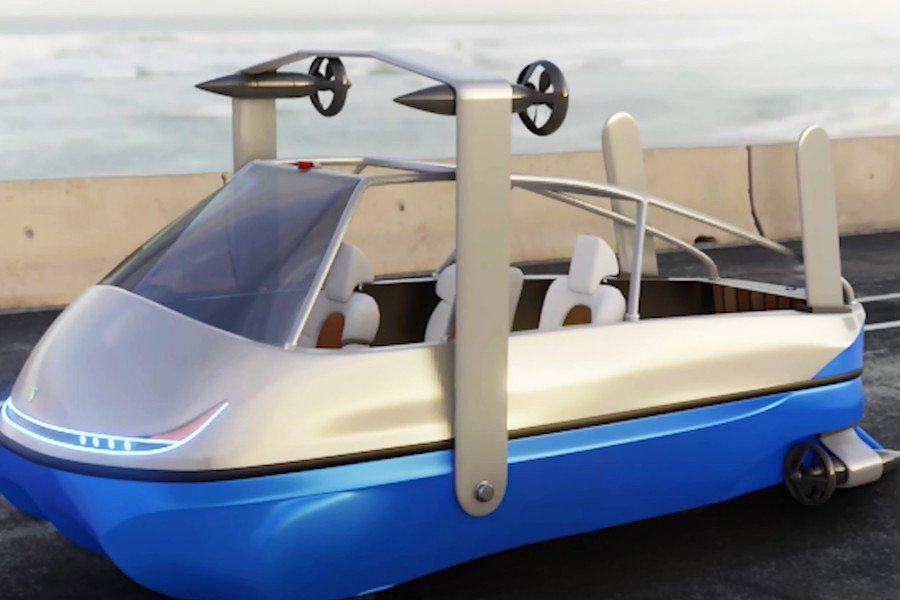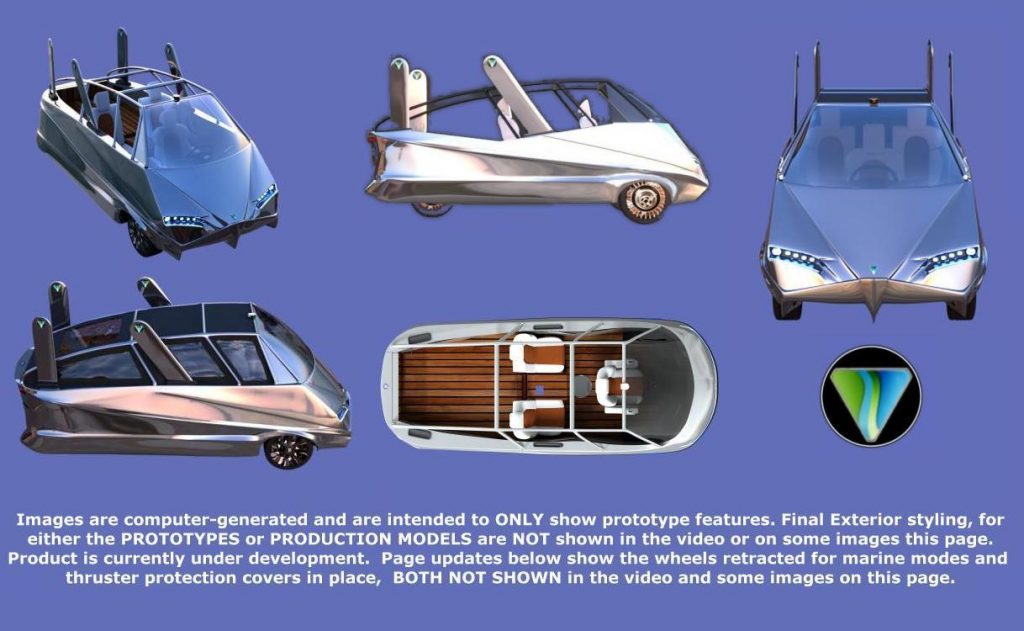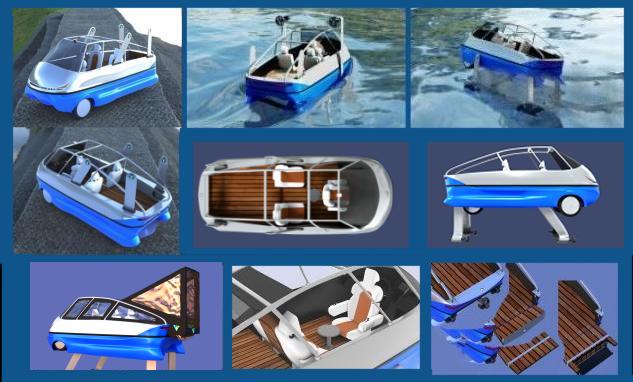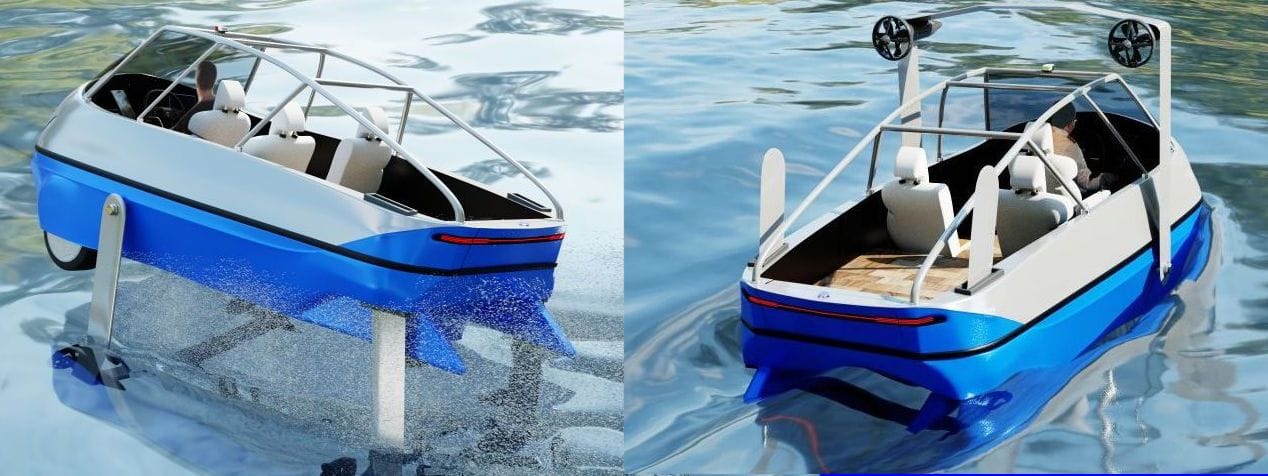Poseidon AmphibWorks’ LS-1 Is an Electric Car That Floats and “Flies” Over Water

If you’ve never heard of the Trident LS-1, it’s OK, because it doesn’t exist yet in physical form. A prototype for the first model in a planned series is currently in the works and will be delivered, if the idea gains enough investors, sometime in 2027. The Trident LS-1 is an electric trike that is road legal and doubles as a boat, and is the work of relatively new startup Poseidon AmphibWorks (hat tip to GearJunkie).
Poseidon AmphibWorks hopes to launch an entire family of such amphibious EVs, designed and specced to fit a variety of purposes. There’s the flagship LS-1, the LS-2, which is the luxury sport model, the search and rescue design LS-3, the limo shuttle LS-4, and the LS-lite, which is a stripped-down, more basic version of the already basic LS-1.
The LS-1, as noted above, is currently in pre-development (the design is not even finished), and the startup hopes to generate enough interest to be able to fund the prototype through crowdfunding. In return, they promise a unique all-electric amphibious hydrofoil autocycle that will have multiple functionality (in commercial, recreational, and search and rescue applications), will deliver the longest range on the smallest battery, and the utmost versatility, comfort, and safety. That’s a lot of “mosts,” but the founders believe they have what it takes to deliver them.
Designed as a trike on the road, the Trident LS-1 will have electric motors for propulsion, one on each wheel. Drive it directly into water, and it will float. By switching from road to water use, it will have propulsion from two electric thrusters mounted on retractable struts in the rear, and two more on the front hydrofoil. Once a certain speed is reached, the Trident will achieve lift and fly over water, which will mean improved range and comfort because of reduced friction.
In other words, Poseidon AmphibWorks aims to take the already-existent model of amphibious car, remove one wheel, make the entire thing electric, and then add hydrofoils to it. We already have amphibious vehicles and electric hydrofoil boats, but there is no such product that combines both right now, so the startup would be serving a market with no direct competitor. Yet.
“For boats, there’s less pollution of the water. There’s less noise,” co-founder Stephen Tice says. “Prices are still ridiculous for most electric boats. And the range isn’t great. But when you put hydrofoils on, everything changes.”
On land, the LS-1 will hit top speeds of 100 mph (161 kph) and have a combined range of 200 miles (322 km), but it can also be towed by a vehicle without a trailer because it’s flat-towable. On water, it would operate at speeds of 35 mph (56.3 kph) with the hydrofoils and 15 mph (24.2 kph) max without them. Range would be 60 miles (96.5 km) with the hydrofoils, which would also make traversing choppy waters a breeze.
Because you can’t claim to offer an innovative product without, you know, actual innovation, the Trident LS-1 comes equipped with a modular deck, a camping kit, fast-charging battery, seatbelts and roll bars for enhanced safety. It has seating for three people (the driver and two passengers in the rear), and will get customization options later down the road, like higher-quality materials, more accessories, and a convertible form factor.
About the same size as a Tesla Model X, the Trident LS-1 can be easily stored in the family garage, doesn’t require a trailer or a different towing vehicle, can be launched directly to water, has applicability for a wide range of activities and interests (including as a yacht tender or dinghy), and is safe, comfortable, reliant, and no carbon footprint when in use.
It sounds like the perfect land and water vehicle, but it’s actually more perfect (*not possible, we know) than that: Poseidon AmphibWorks is eyeing a $95,000 entry price point for the standard model, which is cheap for a boat but not so for a road-legal EV. On the other hand, even in the best case scenario, the timeline for this unique EV is 2027 for the first 1,000 units, so maybe don’t get your hopes up just yet.



Related News
